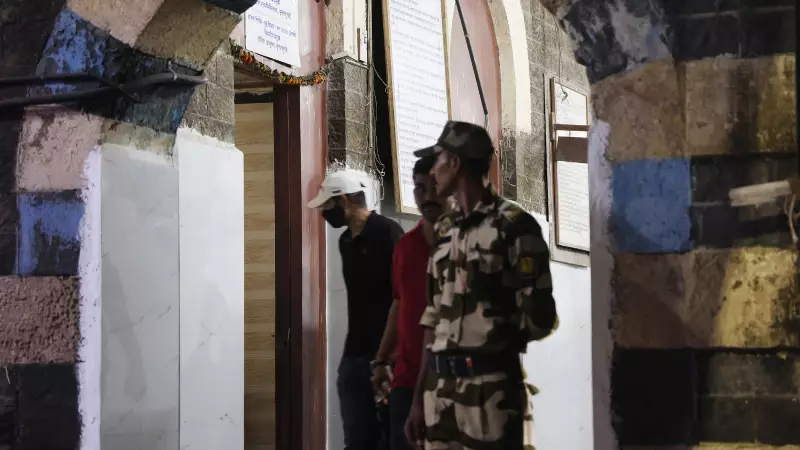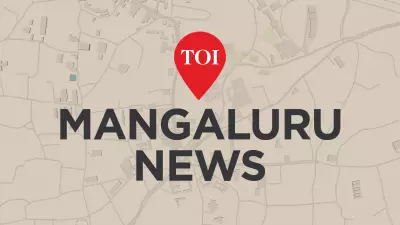
Grassroots Policing: The Unsung Heroes in India's Counter-Terrorism Strategy
In a significant demonstration of local intelligence capabilities, the Nowgam police station in Jammu & Kashmir played a pivotal role in exposing members of a Jaish-e-Mohammad (JeM)-affiliated terror group linked to the recent Red Fort blast in Delhi. The local police's diligent surveillance work, including scanning CCTV footage after discovering provocative posters in their area, led to multiple arrests before the planned attack could be fully executed.
This incident underscores a fundamental shift in India's counter-terrorism approach, where local police stations are increasingly becoming the first line of defense against terrorist activities. The successful intervention by Nowgam police brought security forces within striking distance of preventing the explosion entirely, highlighting how grassroots intelligence gathering can complement the work of specialized national agencies.
Mumbai Police's Pioneering Anti Terror Cells Initiative
While the critical role of local police stations in combating terrorism has gained recognition in recent years, Mumbai Police emerged as pioneers in this strategic approach following the devastating 26/11 terror attacks. In 2012, under the leadership of then Joint Commissioner (Law & Order) Sadanand Date - who now heads the NIA investigation into the Red Fort blast case - the force implemented a groundbreaking proposal to establish Anti Terror Cells (ATCs) across all of Mumbai's 90-plus police stations.
Mumbai Police Commissioner Deven Bharti emphasized the strategic advantage of this approach, stating: "We have Anti Terror Cells at every police station for monitoring suspicious activities that take place in their jurisdiction. Since local police stations are well-connected to people in their jurisdiction, they are better placed to get information at the local level."
Each ATC comprises four to five officers led by an inspector-rank official, all receiving specialized training in intelligence gathering and threat identification. These units maintain clearly defined roles focused specifically on terrorism prevention, though they can be deployed for other police duties when necessary.
Ground-Level Intelligence in Action
The effectiveness of Mumbai's ATC system became evident in December 2015 when local police stations detected three youngsters from Malwani area who had gone missing under suspicious circumstances. The ATC's prompt identification of this pattern enabled security agencies to investigate potential ISIS recruitment activities at the earliest stage.
An officer familiar with the ATC operations explained their monitoring scope: "It could be keeping an eye on people trying to get a SIM card using fake documents or someone suspicious moving into a building or someone going missing from an area or looking at suspicious organizations registered in their jurisdictions."
This localized approach addresses a critical gap in counter-terrorism operations. While Maharashtra maintains specialized units like the Anti Terrorism Squad (ATS), Intelligence Bureau (IB), and Special Branch (SB), the 26/11 attacks revealed the necessity for dedicated local intelligence units capable of understanding community dynamics and gathering ground-level intelligence.
National Recognition and Replication
The success of Mumbai's ATC model has attracted attention from police forces across India. In December 2019, Delhi Police sent officers to study Mumbai's ATC operations, leading then Police Commissioner Amulya Patnaik to implement similar units in the national capital to enhance ground-level intelligence capabilities.
This strategic evolution represents a significant departure from relying exclusively on specialized national agencies like the National Investigation Agency (NIA), established after the 26/11 attacks. The integration of local police stations into the counter-terrorism framework creates a multi-layered defense system that leverages community knowledge and continuous local monitoring.
The recent Nowgam police station's success in Jammu & Kashmir, combined with Mumbai's proven ATC model, demonstrates that effective terrorism prevention requires both high-level specialized agencies and vigilant local police units. As India continues to face security challenges, this integrated approach strengthens the nation's overall counter-terrorism capabilities through improved intelligence gathering and quicker response mechanisms at the grassroots level.





